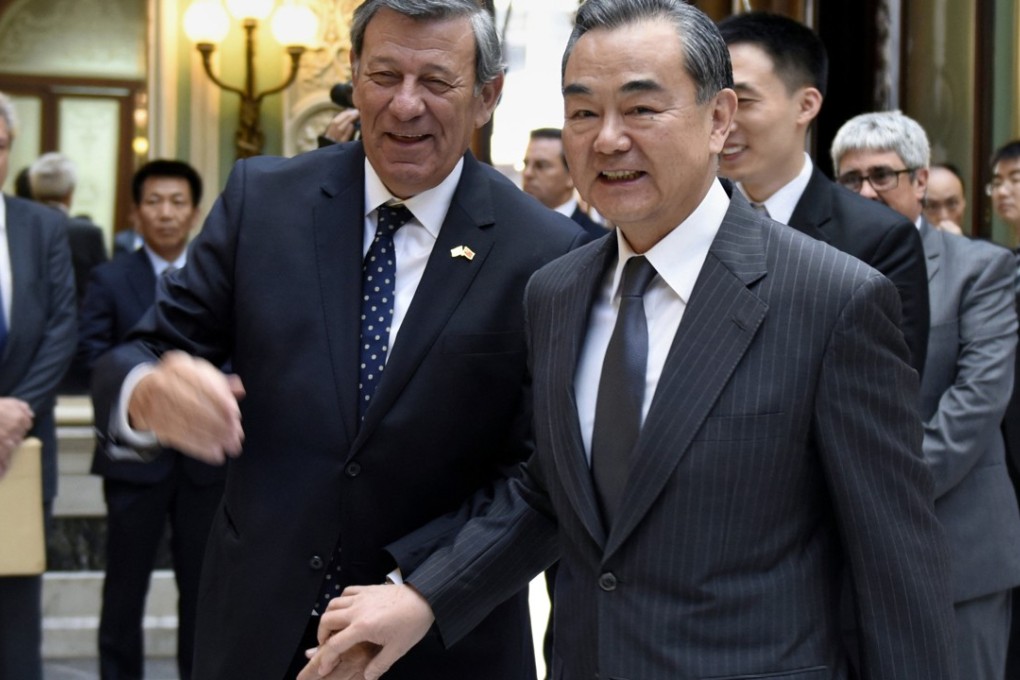Xi Jinping vows to boost ties with Uruguay after US warning to Latin America
President’s message to Uruguayan counterpart comes after US calls on region to be on guard for ‘predatory actors’ and Brazilian railway project is shelved

China has pledged to boost ties with Uruguay and defended its approach in Latin America following criticism from the US and amid uncertainty over a railway project.
President Xi Jinping vowed to expand ties with Uruguay in a “comprehensive way” in a message sent to his Uruguayan counterpart Tabare Vasquez on Saturday to mark the 30th anniversary of the establishment of bilateral ties.
Relations between China and Uruguay had “witnessed great progress” over the past three decades, Xi said in the message.
It came after US Secretary of State Rex Tillerson issued a warning over China’s involvement in the region as he began a tour of six Latin American nations on Friday, calling on them to guard against “potential predatory actors” and the “unfair trading practices” of many Chinese.
US Under Secretary for International Affairs David Malpass also weighed in, saying China had contributed to the shrinking economy in the region.
